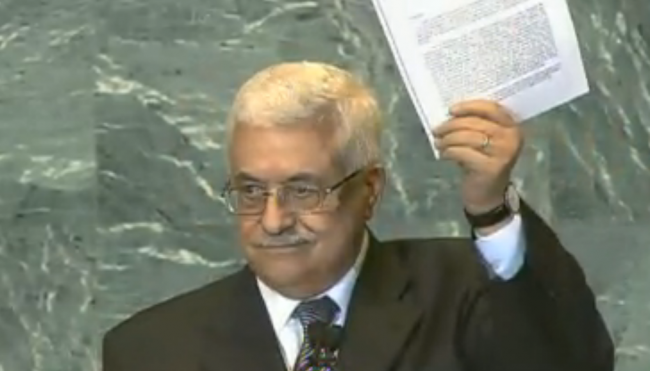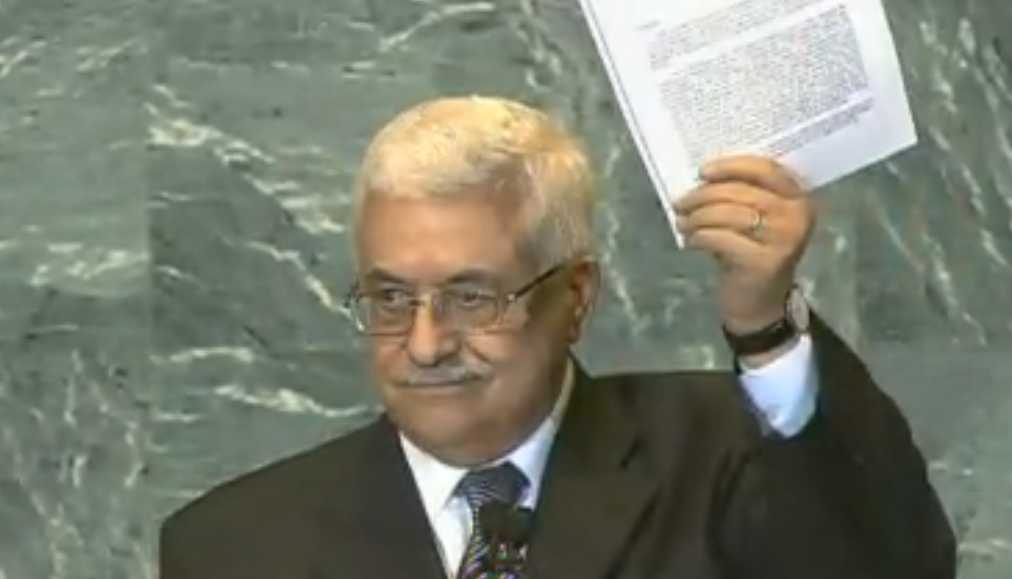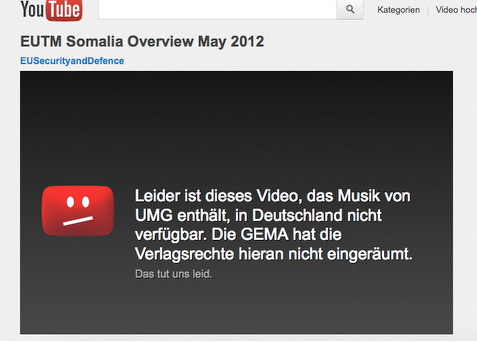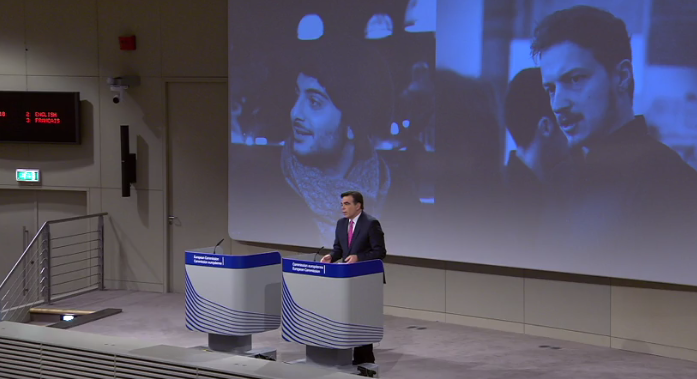The application for recognition of Palestine filed. The Quartet's negotiating agenda

(BRUSSELS2) “ I would like to inform you that I have, in my capacity as President of the State of Palestine and Chairman of the Executive Committee of the Palestine Liberation Organization, submitted to Mr. Ban Ki-moon, Secretary-General of the United Nations, an application for the admission of Palestine on the basis of the borders of June 4, 1967 with Al-Quds Al-Sharif (NB: Jerusalem) as its capital, as a full member of the United Nations ". With these symbolic words, pronounced before the UN General Assembly meeting in New York on September 23, Mahmoud Abbas, the President of the Palestinian Authority ended several weeks of steps and pressures of all kinds. This very symbolic gesture was followed by a declaration by the Quartet (USA, EU, UN, Russia) which put a new agenda for negotiations on the table.
It may be noted that this declaration occurred when Qatar took over the presidency of the General Assembly of the United Nations, the small Gulf emirate, already very active in the conflict in Libya, thus asserts more and more its weight in the Arab world. It is also the day when South Sudan celebrated its entry into the circle of States recognized at the General Assembly.
Israel and the United States quite isolated

When he waved the declaration of candidacy, the head of the Palestinian Authority, Mr. Abbas, was warmly applauded by a large part of the delegations present, many standing or cheering.
We were thus able to distinguish the political differences in the attitude of the delegations: those who stood up and applauded, those who remained seated while applauding and those who did not applaud. Some left the room or were not present. But it was rather rare. The Israeli delegation remained stoically present until the end. Its isolation, as well as that of the United States, was obvious to say the least and gave all its value to the global balance of power that prevails on the Palestinian question.
This formal request for the moment will not be examined immediately by the international bodies, but as "quickly as possible". The Security Council is expected to start considering the request as early as next week (September 26).
The six-point plan of the Quartet
In a one-page statement, the Quartet immediately reacted " taking note of this application », asserting "his determination to actively and energetically seek a comprehensive resolution of the Arab-Israeli conflict ", on the basis of the resolutions of the Security Council, the principles of Madrid, including the exchange of land, the road map and the Oslo agreements in particular, and reiterated a " Urgent call on the parties to overcome the current obstacles and resume direct Israeli-Palestinian bilateral negotiations, without delay or preconditions. "Considering, however, that this meeting, in itself, will not be likely to restore the confidence necessary for such a negotiation to succeed", he proposed a six-point plan, setting out an agenda until the end of 2012.
- 1. Within a month, a preparatory meeting between the parties “ to agree on a program and a method of negotiation”.
- 2. During this meetingn, “a commitment on both sides with the objective of reaching an agreement by the end of 2012”. The Quartet expects parties “complete proposals within three months on territory and security, and to have made substantial progress within six months”. At the end of the process, an international conference will be held in Moscow " timely ".
- 3. A donor conference on Palestine will be organized “ where the international community will lend its full support to the Palestinian Authority's state-building actions developed by Prime Minister Fayyad, under the leadership of President Abbas”.
- 4. The Quartet “recognizes the achievements of the Palestinian Authority in preparing for independence as evidenced by the reports to the Ad Hoc Liaison Committee, and stresses the need to preserve and build on this foundation. The members of Quartet will consult together to determine what further steps they can take to actively support a Palestinian state, individually and collectively, to ensure, in accordance with established procedures, significantly greater independence and sovereignty for the Palestinian Authority over its (competences) . »
- 5. The Quartet “ urges the parties to refrain from provocative actions if the negotiations are effective”.
- 6. The Quartet agrees “to meet regularly and instruct the envoys and Representative of the Quartet to intensify their cooperation. *
* Unofficial translation. The full Quartet statement in English and excerpts from Abbas's speech, see B2 docs
To see the intervention of Mr. Abbas and that by Benjamin Netanyahu, Prime Minister of Israel


